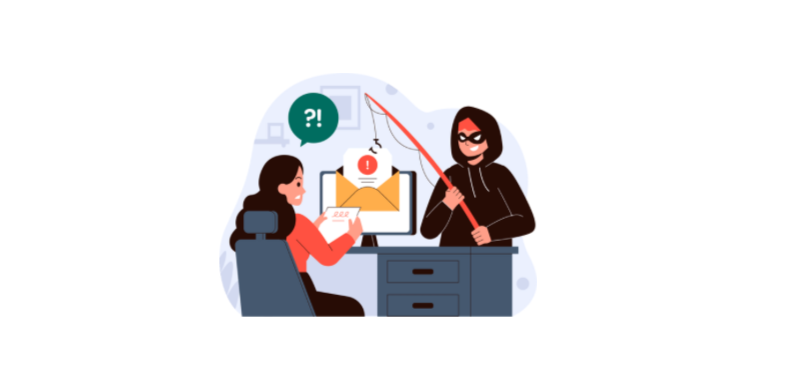Jasmine Birtles
Your money-making expert. Financial journalist, TV and radio personality.


We always think we’re immune from scams – but as they get more sophisticated and convincing, anyone can fall foul of them.
Recent news articles reveal horror stories like the pensioner conned out of £4,000 – thinking she was helping the police. Fraudsters are now so convincing and easy to believe, it’s hard to spot if you’re dealing with a legitimate company or if you’re a scam victim.
Here are the most sophisticated scams to surface in 2025 – and how to make sure you’re not conned.
QR code scams are rife, so the first rule is: if you don’t know the source, don’t scan the QR code.
However, when you’re expecting to scan a QR code, it can be harder to spot the scam. That’s what scammers rely on when it comes to car park QR code scams. Many car parks are now cashless, asking people to pay via an app. They provide a QR code to pay or download the app to pay – but scammers place stickers of different QR codes over them. So, it looks like you’re following the rules and in fact you’re signing away your financial details to a scam.
There isn’t always a way around this, except to use car parks that still accept cash and card payments. They’re not always easy to find, though. However, most places will include a website address on their signage, or council car parks will have a link on their own website. Try to use these if you can. If you’re stuck and forced to use a QR code, look for a few red flags:
If you have paid by QR code for parking recently, keep an eye on your bank account. Look for the payment information – particularly, where it says who the payment has gone to. If it isn’t the name you expected, such as the car park owner, report it to your bank immediately.
There is a huge rise in ‘ghost stores’ on social media. They often steal product images and videos from legitimate companies and run adverts to drive traffic to their own site instead. They’ll accept payment for your order – and then a few days later, the website or Shopify store no longer exists.
In fact, of 71,000 cases of online shopping fraud in the UK in 2023, almost 68% were linked to social media. The problem has only continued to grow.
Henson Tsai, CEO of SleekFlow, says: “Ghost stores game the system. They plug into the same tech real brands use—ads, shipping tools, payment systems—and that’s what makes them so convincing. The platforms are built to look seamless, not to verify what’s real.”

First, don’t click on an advert on social media. If you like the look of a product, Google the name separately. You can also Google ‘product name + review’ or ‘product name + scam’ to check out other online reviews and possible red flags people have posted about whether it is a scam.
Second, check the contact details on the website. If they only offer an online contact form, or their social media presence is Instagram-only with comments turned off, steer well clear. You can also check if a company is registered in the UK with Companies House.
Always check confirmation emails and tracking information. If a Gmail or other non-business email address is used for the contact information, immediately cancel the order (if you can) and contact your payment provider to prevent payment or begin a refund request. Keep an eye on your payment option for further unsolicited payments or transactions you don’t recognise, too.
This one hit the news at the end of March: people scammed into investing their life savings into whisky barrels, then the company disappearing. Investors were either told to invest in barrels that didn’t actually exist, were sold multiple times to different investors, or charged five times the actual worth of the whisky.
Now, whisky investment IS legitimate. However, like any investing opportunity, scammers will be trying to take advantage of people. The first sign that this is a scam is being pressured into investing most or all of your available savings. You should never invest everything into one asset or opportunity: diversifying your portfolio is the best way to secure against scams as well as the ups and downs of various investment markets.
Second, these scammers will promise abnormally huge returns, like 30%. Nobody can promise returns on investments, as their value is always at risk of going down as well as up. A suspiciously high return is also unlikely; you might end up getting lucky on an investment that does big numbers on returns, but even a 5% return is a solid investment over a period of time.
Ask your whisky investment company to provide details of cask storage. Contact the storage company directly to ask if they store casks for that company, as this seems to be one of the best ways to determine if your cask is not only real but legitimate.
The known scammer in this particular case is already serving prison time for fraud. He went by the name of Craig Arch at Cask Whisky Ltd, but his real name is Craig Brooks (and he was already disqualified from being a company director). He and his brother ran Cask Whisky Ltd but also appear to have run another scam under Cask Spirits Global Ltd under the name Craig Hutchins.
Another company, Whisky Scotland, appears to have been a similar scam, but the directors cannot be traced and the company is dissolved.
If you have already invested in Cask Whisky Ltd or Cask Spirits Global Ltd, contact the City of London Serious and Organised Crime team.

This is a convincing scam that’s easy to fall for.
Fraudsters will call pretending to be from your bank. They’ll advise you of a suspicious transaction on your account.
The sophisticated bit comes next: we all know that we shouldn’t give out our details to cold callers on the phone. So, they’ll tell you to hang up and call 999 to report to the police.
However, the fraudsters use technology to keep their end of the phone line open. So, when you call 999, you think you’re talking to a police operator. In fact, you’re still talking to the fraudsters.
They’ll advise you that they believe someone at the local bank is scamming people. They want you to help solve the investigation: you’ll be asked to take out a large sum of money from your bank account.
When you return home, someone posing as a police officer or detective will come to visit your address and collect the money “as part of the investigation”. In fact, they’re just stealing it from you!
There are a few simple ways you can stop scammers like this in their tracks.
The key thing to remember is that the police would never ask you to take money out of your bank account. Similarly, any other organisation that requests you to withdraw cash and have it collected is also operating fraudulently.
This is a relatively new banking scam that’s catching a lot of people out. You will receive a transfer of money into your account – and then a message asking you to refund it to the sender. They’ll tell you it’s an accident and they meant to send the cash to someone else, but they got a digit wrong on the bank details!
Do not send any money!
This is because once you have sent the ‘refund’, they will also claim to their own bank the payment sent in error and get it refunded by the bank’s legitimate system. Or, they will cancel a payment if it is still showing as pending on both sides. This means they get their original money back AND the money you sent them.
If someone does make a legitimate error like this (which is very rare because of Payee Confirmation security steps), they can raise the issue with their bank, who will sort it with your bank. You don’t need to get involved.
And think about it this way: someone getting something wrong on a bank transfer wouldn’t mean they also have your contact details… unless they were using stolen information about you. So, a genuine error would mean the individual couldn’t actively contact you! Only someone using your stolen identity details would have that information.

Amazon Prime scams have been floating around for a while, but a new and more sophisticated one has recently surfaced.
People receive phone calls supposedly from Amazon to tell them their Prime subscription has renewed. Some people have reported this as a ‘robotic’ voice, while others have had human callers.
The call instructs the recipient to ‘Press 1’ if they didn’t request their account to be renewed, so that they can receive a refund of the charge. They then ask for sensitive account information to ‘process the refund’ when, in reality, they’re stealing this information for future fraudulent activity.
Instead of being asked for account information to process a refund, some people have reported that they were asked to log into their Amazon account (or provide details for the scammers to do so).
Once the fraudsters have your information, they can use your bank details and/or Amazon account to spend your money!
Much like the courier scam, the main thing to remember is that Amazon won’t ever call you to confirm your account details.
If you’ve received a suspicious phone call from ‘Amazon’:
You might also receive emails asking you to share your personal details or to click on a link to your account. If you’re not expecting communication from Amazon, treat any email from them as suspicious.
You can forward any suspicious email to [email protected] and make sure you don’t click anything inside the email – links, buttons, or images! If the email is, in fact, legitimate, Amazon will be sure to let you know.
These are just two examples of how easy it is for fraudsters to trick even the savviest people into sharing their personal information. Once your financial information is shared, it’s easy for scammers to use it to steal lots of money from you.
In general, to keep yourself safe from scams:
If it’s too late and you think you’ve been conned out of your money, take action. Many people feel ashamed they’ve fallen victim to a scam – but it happens all the time and is easily done.
First, file a report with Action Fraud. Next, if you know money has been stolen from you, make a police report.
You should also contact your banks and credit card providers to make sure they’re aware. Check your credit record each month, too – this’ll show any identity theft activity (someone opening credit accounts in your name, for example). If this happens, report it immediately and send a notice of corrections to the credit agency to make sure providers can see you’ve been a victim of identity theft.

They are all part of these scam platforms, we were a group of people who had to file reports to Westinghousef.com who helped to recoup all of our investments we could not be more thankful.
Almost all companies should advertise reporting spoof emails/text. I have been receiving email saying my TV licence is overdue and wants me to click a link. There is no way i could report this by forwarding it to TV licensing team to look into it. I just delete it.
I only answer the phone if I recognise the number, if they’re genuine they’ll leave a message for you.